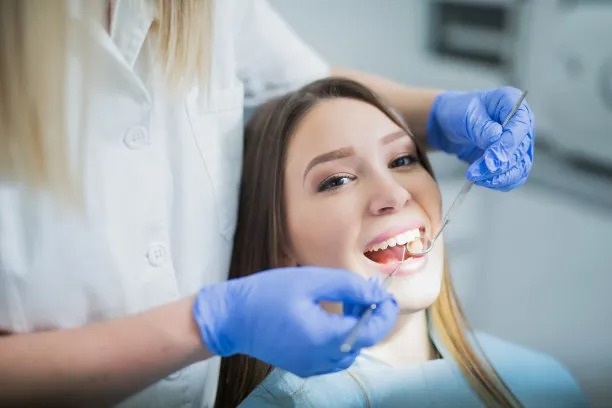Summary: Dental filling procedures are common yet require certain precautions to ensure optimal oral health. This article discusses essential steps to take before and after undergoing a dental filling, emphasizing preparation, aftercare, dietary modifications, and follow-up appointments. By adhering to these guidelines, patients can maximize the benefits of their treatment, ensuring a smooth recovery and enhanced oral hygiene. Taking proactive measures can prevent complications and promote overall well-being following the procedure.
1. Prepare Adequately Before Your Appointment

Before undergoing a dental filling, adequate preparation is crucial. Begin by scheduling your appointment during a time when you can enjoy a quiet recovery afterward. This allows your mouth to heal without rushing back to work or other commitments. Taking into account your schedule will alleviate stress and help you focus on your aftercare.
Furthermore, inform your dentist about any allergies or medical conditions you may have. This information allows the dental professional to select the most suitable materials and medications for your procedure. Discussing your medical history ensures that any potential risks are minimized, contributing to a smoother experience.
Finally, make sure to arrange for transportation, if necessary. Some patients might experience numbness in their mouth from anesthesia, which can make it difficult to drive. Having a friend or family member to take you home provides peace of mind and ensures a safer journey following your appointment.
2. Aftercare: Adhere to Post-Procedure Guidelines
After your filling, adhere strictly to any aftercare instructions provided by your dentist. Typically, you will need to avoid eating or drinking for at least 1-2 hours post-procedure to allow the numbness to wear off and avoid accidental biting of the tongue or cheek. Taking care during this period helps prevent injuries and complications.
Additionally, be aware of the temporary sensitivity you might experience after the filling. It is common to feel discomfort when consuming hot, cold, or sweet foods. Using a toothpaste designed for sensitive teeth can help alleviate this discomfort while your mouth adjusts to the filling.
Moreover, ensure that youre maintaining good oral hygiene practices. Resume your regular brushing and flossing routine gently, taking care to avoid the filled area if its still sensitive. Keeping the mouth clean is fundamental in preventing infection or decay around the filling.
3. Dietary Modifications for Optimal Healing
What you eat after a dental filling can significantly affect your recovery. Opt for soft foods that won’t irritate your filling or cause undue discomfort. Foods like yogurt, mashed potatoes, or smoothies are ideal for the first 24 hours post-procedure.
Furthermore, it is vital to avoid sticky or hard foods that may dislodge the filling or cause trauma to the repaired area. Items like taffy, hard candies, or crusty bread should be avoided during the recovery phase to enhance stability and comfort while eating.
Lastly, ensuring adequate hydration is crucial, but be cautious with temperature. Drink lukewarm or room-temperature beverages until any sensitivity subsides, which helps to provide relief and promote healing.
4. Schedule and Attend Follow-Up Appointments
Lastly, book and attend any follow-up appointments recommended by your dentist. These appointments are vital for ensuring that your filling is properly placed and functioning as intended. Your dentist can quickly address any concerns regarding discomfort or functionality during these visits.
During follow-up visits, your dentist can also assess how well the filling is integrating with your tooth structure. This can prevent future issues and ensure that your oral health is on the right track. Regular check-ups will help spot any emerging problems early, allowing for timely intervention.
Moreover, regular dental visits play an essential role in maintaining overall oral health. Routine cleanings and exams contribute to the prevention of further decay and the need for additional fillings in the future. Staying proactive with dental care is crucial for long-lasting oral health benefits.
Summary:
Taking essential precautions before and after a dental filling procedure is vital for optimal oral health. By focusing on preparation, carefully following aftercare instructions, making dietary adjustments, and attending follow-up appointments, patients can enhance their recovery and minimize complications. A proactive approach in these areas contributes not only to the success of the filling but also to overall oral hygiene and health.
This article is compiled by Vickong Dental and the content is for reference only.
Vickong Dental
Vickong Dental is a large medical group established in Hong Kong in 2008 by professors from well-known medical universities in Guangdong and Hong Kong, as well as medical doctors from key national '985' universities (including Master's supervisors and senior professors). The chain of branches brings together expert dentists with PhDs and Master's degrees from Hong Kong and Mainland China, committed to providing high-quality dental treatment.
"Vickong Dental Practices the University Motto of 'Healing and Serving Society,' with a Stable Operation for Sixteen Years. It Has Been honored with Hong Kong Enterprise Leaders's Choice,' and is a Global Trusted Implant Center for the Nobel Implant System. Recommended by Hong Kong Metro Broadcast and Guangdong Television, it Serves Customers from Over Thirty Countries and Regions, Gaining the Trust and Favor of Citizens from the Guangdong-Hong Kong-Macau Greater Bay Area and Surrounding Cities.

Thousands of customers' unanimous praise
The most recognized and highly recommended dental service by customers in the Guangdong-Hong Kong-Macau Greater Bay Area
We Ensure You Receive Detailed Care and Attention Here
Hong Kong standards, Shenzhen prices, Your Trusted English-speaking dentists

Vickong Dental Medical-Grade Instrument Disinfection Process
Vickong Dental Medical-Grade Instrument Disinfection Process

Vickong Dental Chain: A Warm and Comfortable Environment for Treatment






Appointment Hours

Q&A
Why choose Vickong Dental?
Vickong Dental practices the university motto 「Medicine to Benefit Society」, with each branch bringing together highly qualified dentists with doctoral and master’s degrees from Hong Kong and the Mainland, and has maintained seventeen years of steady operation。Recipient of 「2024 Hong Kong Enterprise Leaders Brand」, 「2025 Hong Kong Enterprise Leaders Brand」, a Nobel Biocare Global Trusted Implant Center, and a brand recommended by Metro Radio Hong Kong and Guangdong TV。
To date, we have served customers from more than thirty countries and regions,earning exceptionally high word-of-mouth recognition and trusted recommendations from residents across the Guangdong-Hong Kong-Macao Greater Bay Area and surrounding cities
We have eight major branches in Zhuhai、Shenzhen,and a consultation and service assurance center in Hong Kong,so you can book a free consultation at any time for any questions,which is very reassuring.
If I do not accept the quotation after the CT scan, will I be charged??
No! As long as the actual treatment has not started, you will not be charged any fees.
Will there be any additional charges during the treatment process?
No, there won’t be any additional charges. Before treatment begins, we will clearly explain the treatment plan and its corresponding fees. Only after the patient agrees and signs the consent form will we proceed with the dental service.
Can I pay in Hong Kong dollars?
Yes. Vickong Dental accepts payment in Hong Kong dollars. The amount will be converted based on the exchange rate of the day, and the applicable rate will be clearly communicated to you in advance.
Can I reschedule my appointment at any time?
Yes. Please contact us via **WeChat** or **WhatsApp** as early as possible, providing your original appointment time and details, along with your preferred new date and time slot for rescheduling.













